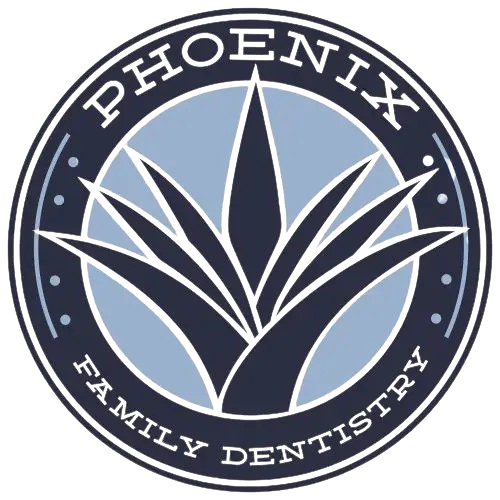
If you feel as though you have no energy and are too tired to keep up with your friends and family, you should visit our dental office to talk about sleep apnea. This may be what is causing your issues, and a simple non-invasive treatment may be just what you need to feel like yourself again. To schedule an appointment with our dental office, call (602) 755-6684. We would be happy to discuss your treatment and then make a recommendation for how you should proceed.
What Is Sleep Apnea?
Sleep apnea is a condition that makes it difficult for your body to receive the oxygen you need to properly function. Without enough oxygen, you will feel drained and sluggish, but since the condition manifests itself at night, most people have no idea that they have it. Call us now.
How Does Sleep Apnea Negatively Impact a Person’s Life?
Untreated sleep apnea can lead to various health complications, encompassing stroke, hypertension, migraines, diabetes, depression, mood fluctuations, cardiac issues, exacerbation of ADHD symptoms, and a general decline in overall health and wellness.
How does sleep apnea negatively impact a person’s life?
Insufficient oxygen intake can severely impair bodily functions, affecting not only your health but also your ability to engage in everyday activities. This may result in a lack of energy to participate in enjoyable events like attending your child's birthday parties, going for a bike ride, or even driving safely. Fatigue can make routine tasks mundane and increase the risk of falling asleep during essential activities, including driving, which could jeopardize both safety and work productivity. Ultimately, untreated sleep apnea can significantly diminish your quality of life, underscoring the importance of seeking treatment from our Phoenix dentist in Phoenix, AZ.
What Is the Difference Between Sleep Apnea and a Sleep Disorder?
Sleep apnea is a physical condition that makes it impossible to breathe clearly while you are sleeping. As a result, your body will not get enough oxygen to function at an optimal level. A sleep disorder can be one of the following:
- Insomnia. Insomnia is the disorder wherein one has difficulty falling asleep. When it comes to sleep disorders, insomnia can be long-term or temporary. Often brought on by external factors like stress, insomnia can be treated with oral medication.
- Narcolepsy. As a sleep disorder, narcolepsy is by far the worst. It is the disorder wherein you can involuntarily fall asleep at any time. This condition can impact you throughout your entire life, making you feel so exhausted that you are forced to suddenly fall asleep, regardless of where you are or what you are doing. Narcolepsy is a true life disrupter.
- Restless leg syndrome. Commonly impacting pregnant women, restless leg syndrome forces your legs to move all throughout the night, giving you a feeling of constant tingles or a burning and itching sensation. Because of this, RLS can be very distracting and affect anyone at any time. It helps to go for a walk or exercise during the day, since those who are sedentary tend to experience RLS more frequently.
- Jet lag. While most people view jet lag as a part of long-distance travel, it is a real sleep disorder. And if your body does not adjust well to the changes in time zones, jet lag could affect you for days or even weeks if you continue to travel from place to place. This disruption in your sleep patterns can make it difficult to get caught up on the rest you need, and may leave you feeling worn down to the point of potentially getting sick. Fortunately, this condition will eventually rectify itself when you get back home after traveling.
- Snoring. If you snore too loudly, you could wake up your Phoenix neighbors, your spouse, or just yourself. Many people cannot get a good night’s sleep because they snore too loudly, and this condition is often brought on by sleep apnea.
Check out what others are saying about our sleep apnea support services on Yelp: Do I Have Sleep Apnea?
What are the two main types of sleep apnea?
- Obstructive Sleep Apnea (OSA). When you have obstructive sleep apnea, your lower jawbone muscles will be too weak to hold your jaw in place as you sleep. As a result, it can fall backward and take your tongue with it. Your tongue will then block your airway, making it impossible to breathe clearly while sleeping. This is why people with OSA will typically snore or sound like they are choking in their sleep. This is one of the signs that the body is trying to move the tongue in order to breathe. Another cause of OSA is having too much fatty tissue in the back of your throat. This is one reason obesity is a risk factor for OSA.
- Central Sleep Apnea. In this condition, the brain is responsible for sleep apnea. By not sending signals to the muscles in charge of breathing, your body fails to respond as it should. This is not something that can be treated by a dentist in 85053, but instead, you will need to see a specialist.
How Is Sleep Apnea Treated?
At Phoenix Family Dentistry, we recommend that patients explore all non-invasive treatment options first. This is why we often suggest that our Phoenix, AZ patients wear a removable oral appliance. An oral appliance is a convenient treatment option because it does not make any noise and is incredibly discrete. Some patients also require the use of a CPAP machine to provide them with additional oxygen. The challenge with a CPAP is that it can be loud and uncomfortable to wear. The third treatment option for OSA is to have surgery to remove the extra fatty tissue blocking your airway.
How Does an Oral Appliance Work?
Wearing an oral appliance is incredibly easy. It is customized for your mouth specifically so it fits snugly and securely. As a result, you can simply slip it into place when you go to sleep. It remains in place inside of your mouth and does an excellent job of holding your lower jaw in the forward position. This prevents your tongue from falling backward and keeps your airway clear. Some people receive all of the benefits they need by wearing an oral appliance, while those with severe sleep apnea may also require the use of a CPAP machine at the same time. In this case, most patients report that their CPAP is far more comfortable than when they were using it as a standalone treatment option.
To learn more about sleep apnea or discuss your oral health in general, call (602) 755-6684 and schedule an appointment with our Phoenix dental office. At Phoenix Family Dentistry, we are happy to discuss your health challenges and make recommendations, even if we have to refer you to a specialist for treatment.





